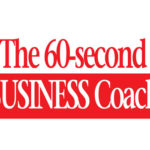By Sulaimon Olanrewaju
One of the denominators of great leadership is the ability to see the invisible. A leader sees a need before it arises; sees opportunities before they become obvious, sees problems and gets the solution before they arrest everybody’s attention. He travels to the future ahead of his people and charts ways to take the people to the envisioned future.
A leadership void of vision is a disaster. Really, visionless leadership is an affliction on the people and the system. The worst tragedy that can befall an organization or a people is being saddled with visionless leadership. It is akin to a blind person leading a group of blind people; their predictable end is not enviable.
A major responsibility of anyone in leadership position is keeping an eye on the trend so as to be able to know what the future portends. To lose sight of the trend is to be a laggard. The strength of leadership, more often than not, is in the ability to effectively predict the trend of event in an industry or a sphere of life at any point. This is important because the only thing that does not change is change. Needs of the market will never remain the same, they will keep changing. It behooves on the leadership of an organization to see what the market will need ahead of time so that it can decide on the product that will address such needs.
Being ahead of the market in identifying needs helps an organization to know how it is doing and what changes will also be required of it ahead of time so that it can remain relevant. It is important to do this because the only real measure of business leadership is performance. This is what is referred to as business reformation or transformation. According to David Cruise, business transformation is the process of changing the systems, processes, people and technology across a whole business or business unit, to achieve measurable improvements in efficiency, effectiveness and stakeholder satisfaction. Therefore, the reason for business reform is improvement of the business.
Amazon.com
In 1994, Jeffery Bezos was employed as a Vice President at D.E. Shaw & Company, a Wall Street firm, when he stumbled on a piece of information that the use of internet was growing at 2,300 per cent. The information hit him like thunderbolt because he realized that with the right business ideas, he could leverage the growth of internet to change the course of history and transform his own life in the process. As he noted later, “Things just don’t grow that fast. It’s highly unusual, and that started me thinking about the kind of business that might make sense in the context of that growth.”
He generated a list of 20 products he thought could be sold on the internet but later picked on books “because of their low cost and universal demand.”
Thus began Amazon.com, the first and currently biggest online bookstore in the world. The business which took off in the garage of the then 30-year old Bezos hit $20,000 per week within 30 days of operation. Two months after commencement of business, Amazon.com got orders from every part of the United States as well as 45 other countries. The growth has been phenomenal ever since.
Despite the instant success recorded by Amazon.com, Bezos never got tired of refining and retuning the business. He expanded its scope to the extent that today, Amazon.com’s operation is not limited to the sale of books as the company sells virtually everything. Besides that, the 23-year old business, which is worth over $1 trillion, has leveraged the success of its online bookstore to acquire many other companies.
Amazon.com’s secret
Amazon.com’s success as a business entity is rooted in its incessant transformation. Bezos realized that once success was recorded in a line of business others would be attracted into it and this would affect market share, so he embarked on a continuous transformation of the business to retain its edge and make it competitive and profitable. Although at the moment there are so many outfits involved in online sale of books, Amazon.com still remains the world’s largest bookstore.
Omatek’s rise to greatness
Omatek Group, established by the late Mrs Florence Seriki, started as a training outfit. The company which came into existence during Seriki’s National Youth Service Corps (NYSC) days was set up to offer computer training services to corporate executives. This was before computer training programme became the in-thing in the country. But she knew that she could not retain her edge if she stayed rooted in training alone. So, she transformed the business to accommodate other interests.
According to Mrs Seriki, “As I was training executives, I realised that many companies did not have enough computers, I saw this as an opportunity to start selling computers. So, I started initially by buying foreign brands and selling to my customers. As a result of the excellent sales performance achieved by Omatek Ventures, we were appointed as a premium partner of Microsoft. By this time, we had annual sales revenue of over $1million.”
From merchandising, Omatek veered into manufacturing computer sets. The company also moved into the production of television sets and other household items. The company is currently seizing the opportunity provided by the energy challenges in the country to produce solar hybrid alternative power solutions with the deployment of LED bulbs for domestic and industrial use.
The Omatek Group CEO explained that the company’s venture into this line of business started following an insight she got after a meeting with a former Minister of Power.
She said, “I was at a meeting with the Minister of Power where he stated the efforts of the government to increase power generation. Then, it occurred to me that while the efforts to increase power generation should continue, it is also important that we bring down the rate of power consumption. I realized that most of the bulbs in use in the country are power guzzlers. It was at that point we decided to go into this line of business. If we reduce power consumption by using energy saving bulbs, we shall free up power for industrial use.”
She pointed out that the use of solar/LED solution could result in significant operational and maintenance cost savings for schools, public offices, hospitals, hotels, street lighting implementation, rural electrification and rural water system.
When to reform your business
The undoing of many businesses is the belief of the leadership in the saying, “if it ain’t broke, don’t fix it.” For as long as the business is doing well in the estimation of such leaders, there is no need to improve on it. After all, they reason, what is the point in changing a winning formula? So, they keep doing the same thing year after year and neither bother to retune the business nor try something new. It is only when the company runs into crisis that they think of change.
Any company that leaves reforms until it is heading south may never be able to get out of it. As a going concern, a business must always be subjected to reform and retuning to stay fit and proper. The reform could be yearly or every other year but it must be a consistent and continuous exercise to benefit the organization.
How to reform your business
A company’s raison d’être is to satisfy the customer. This, therefore, means that a company that wants to stay relevant must be customer-centric; it must be in tune with what the market wants. Many companies underplay this and, as a result, underrate the market. Customers’ crave for out of this world products is incomprehensible but it is an ever present yearning. Thus, it is the responsibility of a company that wants to stay relevant to find out what the next craze will be and make it available to its customers.
This is where research comes in. A company does not just foist on the market what it thinks the market needs, it must find out what it needs and make it a point of duty to provide this.
Be abreast of technological development
Technology is the driver of change in the times we are in. Understanding this is important because the customer is always looking for an easier way of doing things which is made possible through the deployment of appropriate technology. So, to be on constant reform, a company must embrace technology that can improve its service delivery.
Not too long ago, for any air traveler to buy a ticket, he had to be physically present at the ticketing office or the airport. But that is no longer the case as a passenger can now buy his ticket and effect payment online. He can even check in online days ahead of the flight. This has been facilitated by technology and it has made life a lot easier for the customer. Any airline that insists on subjecting its customers to checking in physically all the time will lose a huge chunk of patronage.
Right people
Reforms in organizations are not restricted to processes but should also be extended to the people. So, it is important for a company that wants to be sustainable to inculcate in its people the right culture, especially as it affects customer service. Every layer of the workforce should be engaged in training and retraining on delivering excellent services to customers. A business that has excellent customer service will easily turn its customers to its freelancing sales people.
Pioneer change
Many companies are afraid of championing change in their industry because the market may not respond quite well and all the resources invested in developing the product would have gone to waste. While it is true that it is not every new product that is embraced by the market, the fact is that the market is always hungry for new products. What must be done is to ensure that the product solves a problem. Customers don’t spend their resources on a product because they like the manufacturer; they do so because they are looking for a solution to their need. So, if a new product addresses a need in the lives of the customers, they will embrace it.
The fact is that pioneers always have an edge and they are always over-compensated. That is why Amazon is still the largest online bookstore in the world. It saw the opportunity and seized it. A company that is unwilling to take the plunge will always be a laggard. As observed by Richard Branson, the courageous may not live forever but the cautious don’t even live at all.
Last line
Businesses that delay reform risk being displaced.
WATCH TOP VIDEOS FROM NIGERIAN TRIBUNE TV
- Relationship Hangout: Public vs Private Proposals – Which Truly Wins in Love?
- “No” Is a Complete Sentence: Why You Should Stop Feeling Guilty
- Relationship Hangout: Friendship Talk 2025 – How to Be a Good Friend & Big Questions on Friendship
- Police Overpower Armed Robbers in Ibadan After Fierce Struggle






